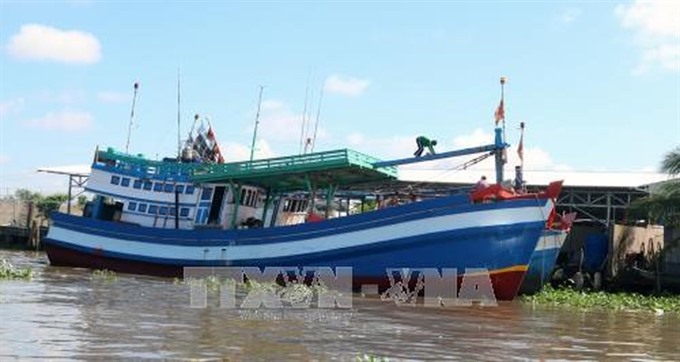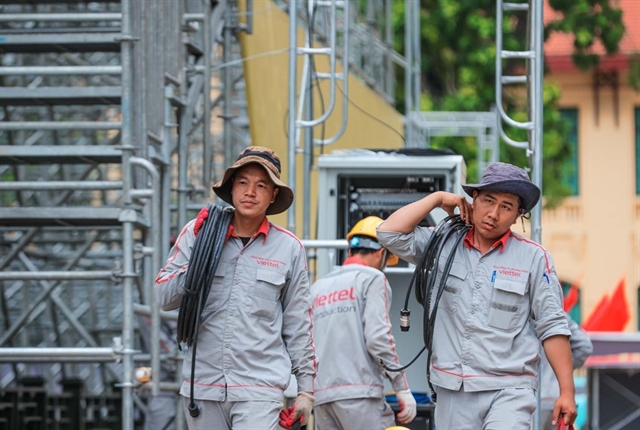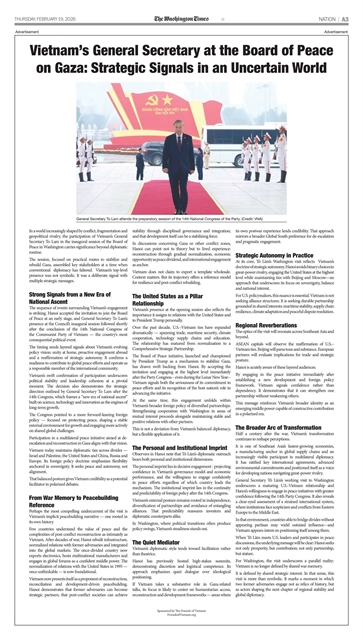.jpg) Environment
Environment

Many experts and scientists on Monday (May 28) continued to express concern about the Cái Lớn-Cái Bé dual sluice project in Kiên Giang Province and its possible impact on the region
 |
| A boat anchors at Cái Bé River in Kiên Giang Province’s Châu Thành District.— VNA/VNS Photo Lê Huy Hải |
HCM CITY — Many experts and scientists on Monday continued to express concern about the Cái Lớn-Cái Bé dual sluice project in Kiên Giang Province and its possible impact on the region.
The project is expected to control saline intrusion and adapt to climate change.
At a meeting on the sluice project held in Cần Thơ on Monday, a report from the independent group of the Ministry of Agriculture and Rural Development and United Nations Development Programme in Việt Nam showed that saline intrusion was from the region’s eastern sea, but the sluice only controls water from the western sea.
Traffic is increasing on the two rivers of Cái Lớn and Cái Bé, forcing sluices to open, so it is difficult to control salinity as required.
However, the group concluded that the Cái Lớn-Cái Bé dual sluice project is necessary.
Đặng Kiều Nhân, representative of Mekong Delta Development Research Institute, said the project owner was unclear about the VNĐ8 trillion (US$350.9 million) investment.
As scheduled, the management board for investment and building irrigation infrastructure project No.10 under the Ministry of Agriculture and Rural Development collected public opinions about the project’s implementation last year.
But residents have not been informed about the project, Nhân said.
Nguyễn Hữu Thiện, an independent expert on Mekong Delta’s ecology, said the project should not be carried out. Severe drought and saline intrusion in 2016 was caused by El Nino’s impact at that time, and it only occurs one time every 90 years.
The independent group said that the project was needed because of rising water levels but he disagreed with that conclusion.
In reality, the sea water rises only 3mm per year, while the region faces dangerous depression because of exploitation of underground water, Thiện said.
The environment has been damaged and rivers blocked, so people have been forced to exploit underground water, he added. If the project is carried out, the environmental risk and depression could worsen.
The project would not help ensure food security as the independent group claimed, Thiện said.
He said that in 2016 when the region suffered severe drought and saline intrusion, nearly 5 million of tonnes of rice were exported. Food security was not severely affected.
There is no evidence that shows the project would prevent fresh water from running out in the region, he said.
Dr Dương Văn Ni of Cần Thơ University’s faculty of environment and natural resources, said the project could affect thousands of people in the region.
On the same fields, farmers sometimes need both salt water and fresh water. So it is not necessary to carry out the project to prevent saline intrusion, he said. —VNS




